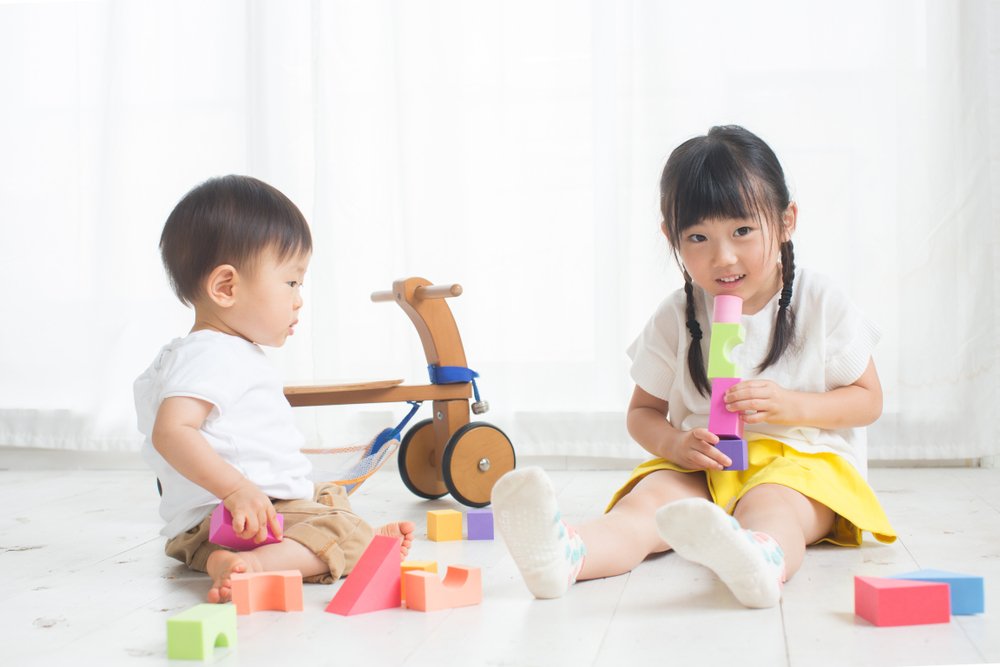Key points:
- Babies begin to develop cause-and-effect thinking around seven months, when they learn that they can intentionally affect their surroundings.
- Spatial relationship skills are honed through play, such as manipulating objects to fit into different containers or assembling them into new shapes with building blocks.
- Young children develop classification skills as they learn to sort objects by size or compare quantities, allowing them to make comparisons in the world around them.
- Symbolic thinking skills begin to emerge around age two, allowing children to use substitutes for objects and understand concepts like counting.
Some of our key thinking skills are developed since we are curious little babies, wanting to explore our world. Learn a bit more about some of them, and how they are fostered through play.
Cause and effect: The appearance of this skill is an early sign of intelligence. Babies experience the effect they have on objects by chance –like accidentally making a ball roll and light up. At first, they don’t make the connection between their action and the result it brings, but then, at around 7 months, babies begin to learn that they can affect their surroundings, and make things happen. They then begin to act with purpose to produce a desired outcome, like pushing a button to make a sound play.
Spatial relationships: We use this skill to solve everyday problems; it helps us understand how things fit together. Children experiment with it through play by placing objects in different containers or, for example, turning an object around until it fits and is inserted in a shape sorting box. Toddlers then learn that objects are made up of parts, and that these parts can be put together to make something new. This can be observed when playing with building blocks.
Classification: This is the ability to compare similarities and differences, and categorize objects into groups. Children first begin to learn to match and sort –organizing the information they receive from the world around them. At around 2.5 years, children learn about size and begin to organize objects from smallest to largest, or the other way around. When they reach 3 years old, they begin to understand the concept of quantity and numerical concepts. With these thinking skills, children can recognize patterns and make comparisons in the world around them.
Symbolic thinking skills: These skills begin to emerge when kids are around 2 years old. It implies having the ability to use a substitute, like a box, for another object, like a spaceship. These symbolic thinking skills are necessary for understanding that concepts like words are symbols for objects and people, and that numerical concepts are used to count.
Together, all of these skills help children understand how their world works. They give them the tools they need to solve problems, organize information, construct new knowledge, and use their imaginations.
As a parent or caregiver, you play a special role in helping your child learn through play. Although most of this learning can happen naturally, you’re a key player. You offer the right opportunities for exploring and experimenting, encourage problem-solving, and provide the right props that spark imagination! You’re building thinking skills that will help your child the rest of their life. Visit the Kinedu app for ideas on playtime and how to foster these thinking skills in your little one.








